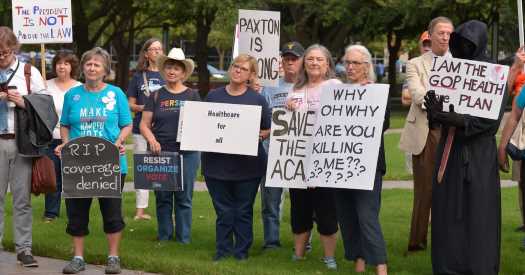3 Legal Experts on What the Obamacare Ruling Really Means

Ever since Judge Reed O’Connor of the Northern District of Texas ruled a year ago that the Affordable Care Act was unconstitutional, the country has been waiting for the next arbiter — a federal appeals court — to weigh in on the fate of the landmark health law.
On Wednesday, that ruling finally came. But it offered little clarity.
The judges from the Court of Appeals for the Fifth Circuit, in a 2-1 decision, ruled that one key element of the law — the mandate requiring people to have insurance — was unconstitutional. But they sent the rest of the case back to Judge O’Connor for what the dissenting judge called a “do-over,” asking him to give it another think on the question of whether other parts of the law should be struck down too.
The move means the legal showdown could continue for a long time, almost certainly beyond the 2020 election.
We spoke with three law professors who have closely followed the battles over Obamacare, to preview what next steps in this already prolonged litigation might look like.
Can anything be done to speed up this process?
The group of Democratic states who are defending the act could ask for all judges on the 5th Circuit to take the case, known as an en banc hearing. Xavier Becerra, the attorney general of California, said in a news conference on Thursday that he wants to appeal directly to the Supreme Court but is consulting other attorneys general in the group about that strategy.
“Both are long shots,” said Jonathan H. Adler, who teaches at Case Western Reserve University School of Law. Since there are no immediate consequences to Wednesday’s ruling — the law continues to be enforced while the court process plays out — the Supreme Court, in particular, would be unlikely to consider the case until it has made its way fully through the lower courts, Mr. Adler said.
Not everyone shares that view, given the national importance of the law to the nation’s health care system. “This is an unusual case and the writing for the A.C.A. is on the wall,” said Nicholas Bagley, a professor at the University of Michigan School of Law. “So the court might opt to hear it now.”
Source: Read Full Article